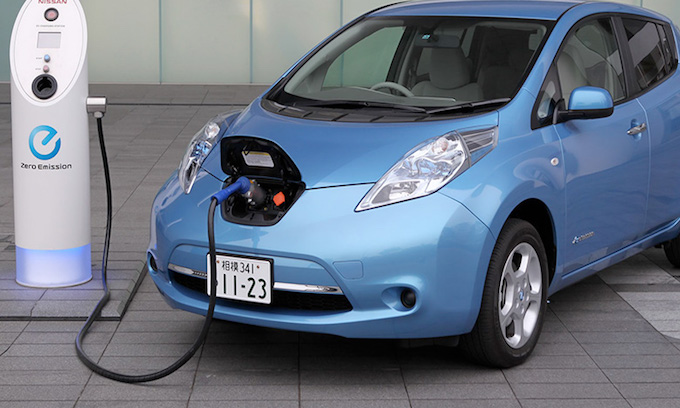If driving a battery car, enjoy the ride. Just don’t act smug.
Acknowledge the child slaves who helped produce it. Think about the extraordinary volume of water used to mine metals for the car’s energy. Think about the environmental toll the battery car imposes on Mother Earth.
When a politician says “Zero Emission Vehicle,” referring to a battery car, consider the claim a bald-faced lie. Do not let it go unchallenged. Show up at battery car promotional events and ask them to stop advancing hazardous mining and human rights atrocities as clean and just. Don’t be duped by the “green car” myth.
Colorado politicians out-“greening” each other are forcing a “Zero Emission Vehicle” car revolution few consumers want. This summer the Colorado Air Quality Control Commission adopted California’s “Zero Emission Vehicle” standard without legislation or meaningful public process. It means battery cars must comprise 5% of all car dealer sales by 2023. We can expect more battery mandates-by-fiat as California enacts them.
In the latest push for battery cars, the Colorado Department of Public Health & Environment will partner this week with Denver city and county officials for an event titled “Pass Gas.” Between 11 a.m. and 2 p.m. Thursday, politicians will encourage attendees to “Pass Gas” on Bannock Street, between 14th and Colfax avenues, by test-driving battery cars.
“Shrink your contribution to climate change and help improve the air we breathe by passing gas and driving electric,” implores the Denver city/county website.
Anyone who follows this advice should know of a recent warning by Amnesty International, which called out the electric car industry for abuses of human rights and the environment.
“Amnesty International has documented serious human rights violations linked to the extraction of the minerals used in lithium-ion batteries,” explained the organization in a written statement in March.
Amnesty found the worst violations in the Democratic Republic of the Congo (DRC). Americans pretending they can save the planet with a vehicular fashion statement is the last thing DRC residents need.
More than 70% of the Congolese people lack adequate access to food; 23% of children suffer malnutrition. Life expectancy is 48 years for men; 52 for women. Infant mortality ranks among the highest in the world. They would benefit from access to more fossil fuels — energy products the American left hopes to eliminate.
To help phase out fossil fuel production, left-wing politicians want more batteries. The children of Africa and other underdeveloped regions get stuck with the trenchwork. Amnesty reports of finding “children and adults in southern DRC working in hand-dug cobalt mines facing serious health risks, neither protected by the government nor respected by companies that profit from their labour.” Amnesty’s research links the mines to “electric vehicle companies.”
“With more than half of the world’s cobalt originating in southern DRC, the chance that the batteries powering electric vehicles are tainted with child labour and other abuses is unacceptably high,” Amnesty reports.
UNICEF, the United Nations Children’s Fund, discovered more than 40,000 kids working in battery-car mines in 2014 in the southern DRC alone. The number has likely climbed substantially in five years with the political propagation of “ZEV” cars.
Amnesty’s concerns with battery cars don’t stop with inhumane mining.
“Most of the current manufacturing of lithium-ion batteries is concentrated in China, South Korea and Japan, where electricity generation remains dependent on coal and other polluting sources of power,” the organization reports. “…Meanwhile, rising demand for minerals like cobalt, manganese and lithium has led to a surge in interest in deep-sea mining, which studies predict will have serious and irreversible impacts on biodiversity.”
The publication Engineering.com found identical concerns and more when it analyzed battery cars for a 2018 article titled “Will Your Electric Car Save the World or Wreck It?” The article explains the unsustainable and environmentally hazardous process of mining metals for battery cars, adding: “Even if the mining industry were ecologically sustainable, lithium-ion (Li-ion) batteries have been known to explode and/or catch fire. Avoiding such incidents, the batteries are extremely difficult to recycle, often resulting in the disposal of a spent, but still toxic and flammable battery in your local landfill.”
Though consumers use L-ion batteries in their mobile phones, those gadgets play a comparatively small role in the growing demand for child labor. To compare a cell phone to a battery car, Engineering.com explains, “is like comparing a matchstick to a bonfire.” An iPhone weighs a few ounces; Tesla’s Model S battery contains 26 pounds of lithium alone, not to mention the assortment of other elements extracted from mines.
The article explains how mining a ton of lithium requires 500,000 gallons of water, which gets tainted with chemicals. Battery car mining consumes up to 65% of the water in some regions, “diverting it from local food production.”
“Residents near Chinese graphite mines have remarked on the sparkly nature of air particles, with the dust ultimately contaminating food and water supplies,” Engineering.com explains. “In areas surrounding nickel mines, there have been increased rates of deformities and respiratory problems linked to pollution from nickel mining and smelting.”
Meanwhile, gasoline and diesel cars support six-figure blue-collar wages for adults (only) working at safe, strictly regulated wellheads throughout Colorado and other parts of the United States. Battery cars move us away from that peaceful arrangement. They push us toward an industry of unregulated child labor and environmental degradation we don’t have to look at.
“Pass Gas” with a battery car and appease a politician — understanding the humanitarian and environmental footprint, which does not pass the smell test.
___
(c)2019 The Gazette (Colorado Springs, Colo.)
Visit The Gazette (Colorado Springs, Colo.) at www.gazette.com
Distributed by Tribune Content Agency, LLC.
—-
This content is published through a licensing agreement with Acquire Media using its NewsEdge technology.



















Recent Comments